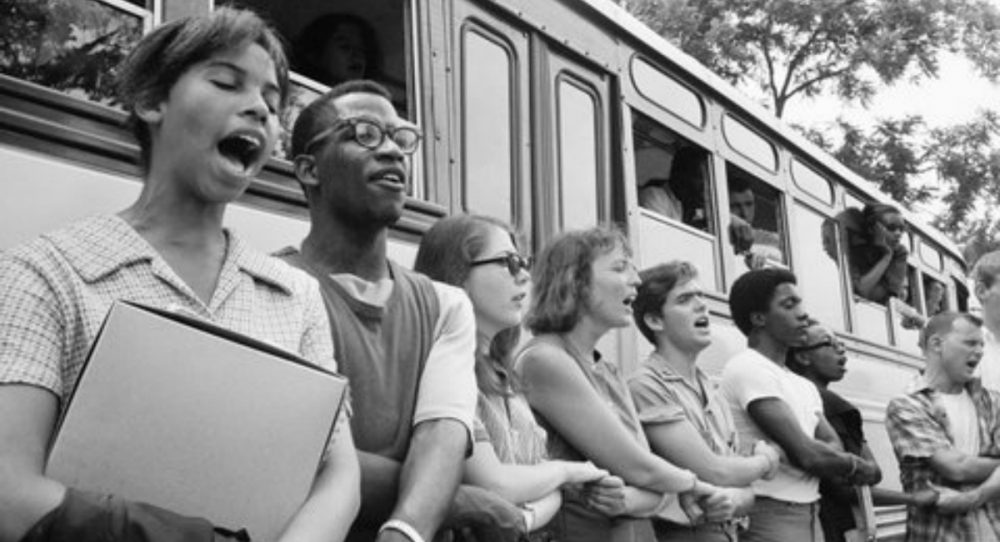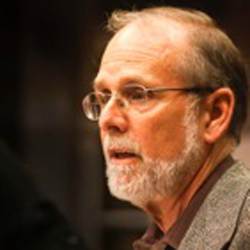Advertisement
In The Shadow Of A Good Man: Mississippi Burning, 50 Years Later

It keeps coming. Fifty years later, the significance of “Freedom Summer,” the Mississippi Voting Project of 1964, gets measured not by our accomplishments, but by our losses. Not by voters registered, or our Freedom Schools, or the politics overturned at the 1964 Democratic Convention, but by the interracial lynching of James Chaney, Andrew Goodman and Michael Schwerner on June 21, 1964 in Neshoba County, Mississippi. These three have entered not only history, but mythology. They have become emblematic. For me, however, they resist abstraction, especially Andy Goodman.
If [Andrew] Goodman's murder made him a martyr, it was to a yet unfulfilled cause we can still call voting rights, justice, freedom.
His very name: Goodman, so accidentally allegorical. Mickey Schwerner seems to embody a kind of working-class secular Jewish-Americanness; James Chaney the formality of a black man who refuses to be a “boy” in his culture. While Schwerner earned his place by being a project leader, Congress of Racial Equity (CORE) staff, Chaney was born into his fated role. We would learn later that Schwerner was the explicit target of the murders.
But Andy’s white-bread surname steps straight out of “Pilgrim’s Progress,” even if by way of eastern Europe. Goodman arrived in Mississippi not quite by chance, but not on purpose, either, to become the representative good man of the Summer Project, the volunteer. The rest of us eight hundred or so volunteers lived and worked in his shadow the remainder of that year, as we have during the long decades since.
One of the burdens of history has been to turn us, male and female, too, into good men. Even at this distance in time, white strangers North and South thank us for our service, like military veterans. Grown black people come to shake our hands and embrace us. We are embarrassed.
We did not seek this. We acted, and continue to act, to help right wrongs that continue to bedevil our country. If Goodman's murder made him a martyr, it was to a yet unfulfilled cause we can still call voting rights, justice, freedom.
Why was it Andy Goodman in the blue station wagon with Schwerner and Chaney in Philadelphia, Miss., that day? I don’t know. It could have been any one of us. This fact caught up with me only forty years afterwards, at a memorial service. On the stage of a large Mississippi convention hall sat Andy Goodman’s mother, Carolyn, and his brother, David, among a host of dignitaries, including the state’s only black congressman, Benny Thompson, and Chip Pickering, the right-wing white congressman whose district then included Philadelphia. I was placed among other veterans of that summer of 1964, wearing a “VIP” badge in one of the front rows, looking up.
Why was it Andy Goodman in the blue station wagon with Schwerner and Chaney in Philadelphia, Miss., that day? I don’t know. It could have been any one of us.
Suddenly — in a moment that comes as close as any I have experienced to a mystical vision — the scene above me dissolved. In place of Andy Goodman's mother and brother, I saw my own mother and my own brother sitting there, waiting for the commemoration. Therefore, Goodman himself must have been sitting in my seat.
Andrew Goodman was a year and a half older than I and had grown up in a New York matrix of left-wing activism that that barely reached my suburban family. We had mutual friends. Our paths crossed frequently enough during the training for Mississippi in Oxford, Ohio, but I had no reason to befriend him in particular, nor he me. If I came into direct contact with him at all, it was most likely to point up our differences, not our similarities. In the ways that matter most to all of us who are alive, his individuality, his personhood, the books he read, the girls he loved, the classes he took — I did not know him.
Still, he has walked beside me since 1964. In 1968, at an interview for conscientious objection before the Selective Service board, one of the interviewers responded to my experience in Mississippi by asking, "Oh, were you one of the three who were killed?"
How do you answer that? Yes. No. It doesn't matter. It matters. It's not funny.
At the conference of veterans at the 50th anniversary of "Freedom Summer" in June in Jackson, it was remarkable how many of us look identical. The men, I mean. Thickened bodies, trimmed white beards, pattern baldness, glasses. Somewhere among us Andy Goodman still walks, serious, dark-haired, lean, in his nondescript t-shirt. He is one of us. I am one of him.
Related:
